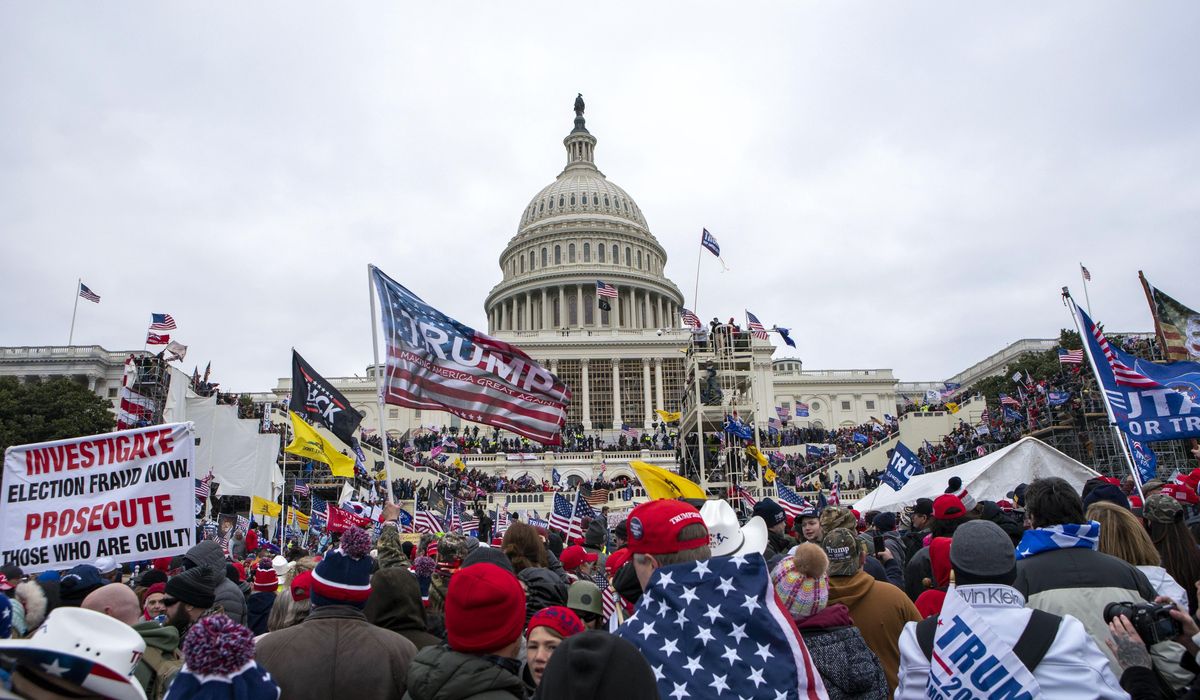


The Supreme Court ruled Friday for a Jan. 6 defendant challenging an obstruction charge used by federal prosecutors to ding people who entered the U.S. Capitol that day in 2021.
The 6-3 ruling wasn’t ideologically divided, with Justices Amy Coney Barrett and Ketanji Brown Jackson switching wings of the court to join colleagues in their respective decisions.
A majority of the court ruled that federal prosecutors couldn’t use an obstruction charge against a Jan. 6 defendant without showing the individual impeded or destroyed a document or evidence used in an official proceeding.
The feds tried to use the law — which critics claimed was geared toward destroying evidence in official proceedings — against Jan. 6 protesters who interrupted the 2020 vote certification by Congress.
The high court’s ruling holds that the feds’ interpretation of the obstruction statute was too broad.
“Our usual approach in obstruction cases has been to ’resist reading’ particular subprovisions ’to create a coverall’ statute, as the government would have us do here,” wrote Chief Justice John G. Roberts Jr. for the majority.
Justices Amy Coney Barrett, Sonia Sotomayor and Elena Kagan disagreed with the majority.
The case was brought by Joseph Fischer, one of those convicted under the law, who said the statute was intended to snare people who try to destroy evidence of corporate fraud cases, such as document shredding.
Special counsel Jack Smith has hit former President Donald Trump with the same charge and a conspiracy section of the law for his actions on Jan. 6, which Mr. Smith says were an attempt to subvert the counting of the Electoral College votes.
Fischer, a former police officer, attended the “Stop the Steal” rally on the Ellipse near the White House on Jan. 6. He and a companion then left town. After learning of the crowd at the Capitol, they returned, though not until after the Electoral College counting was suspended.
Fischer entered the Capitol, made it about 20 feet into the building and was pushed by the crowd into a line of officers using pepper spray. He then left the building. He was inside for four minutes.
Federal authorities charged Fischer with seven counts related to the Jan. 6 protest, but the one before the justices was Title 18, Section 1512(c), which reads:
“Whoever corruptly — (1) alters, destroys, mutilates, or conceals a record, document, or other object, or attempts to do so, with the intent to impair the object’s integrity or availability for use in an official proceeding; or (2) otherwise obstructs, influences, or impedes any official proceeding, or attempts to do so, shall be fined under this title or imprisoned not more than 20 years, or both.”
A U.S. district judge in the District of Columbia sided with Fischer and dismissed the charge, ruling that the law didn’t apply to the events of Jan. 6. The circuit court reversed that decision.
Judges had debated whether the word “otherwise” means the second part of the statute, modifies the first or whether it’s independent.
The charge was brought against more than 300 of the roughly 1,200 Jan. 6 defendants. The Associated Press reports that at least 152 have been convicted or pleaded guilty and 108 of them have been sentenced.
• Stephen Dinan can be reached at sdinan@washingtontimes.com.
• Alex Swoyer can be reached at aswoyer@washingtontimes.com.
